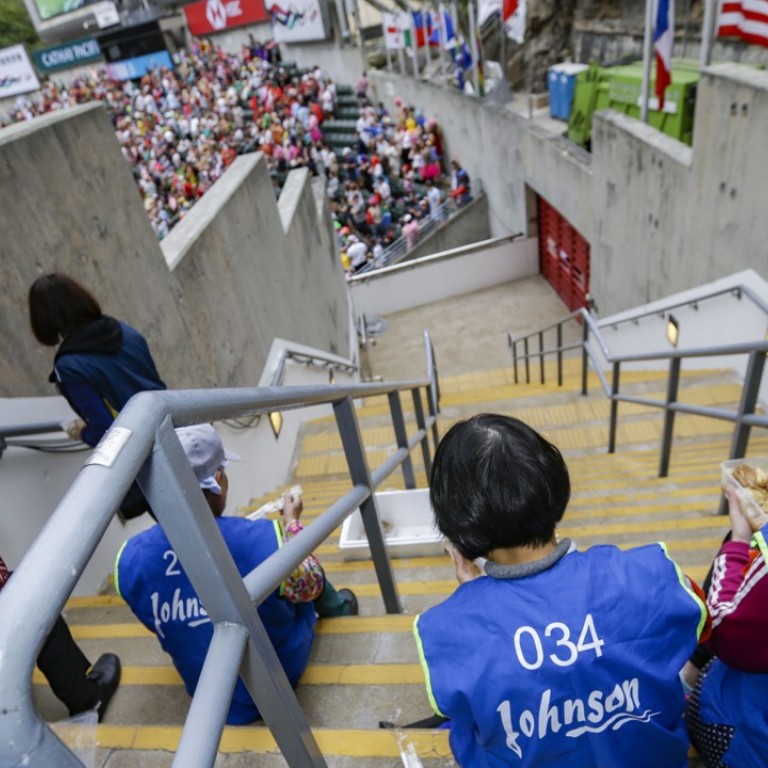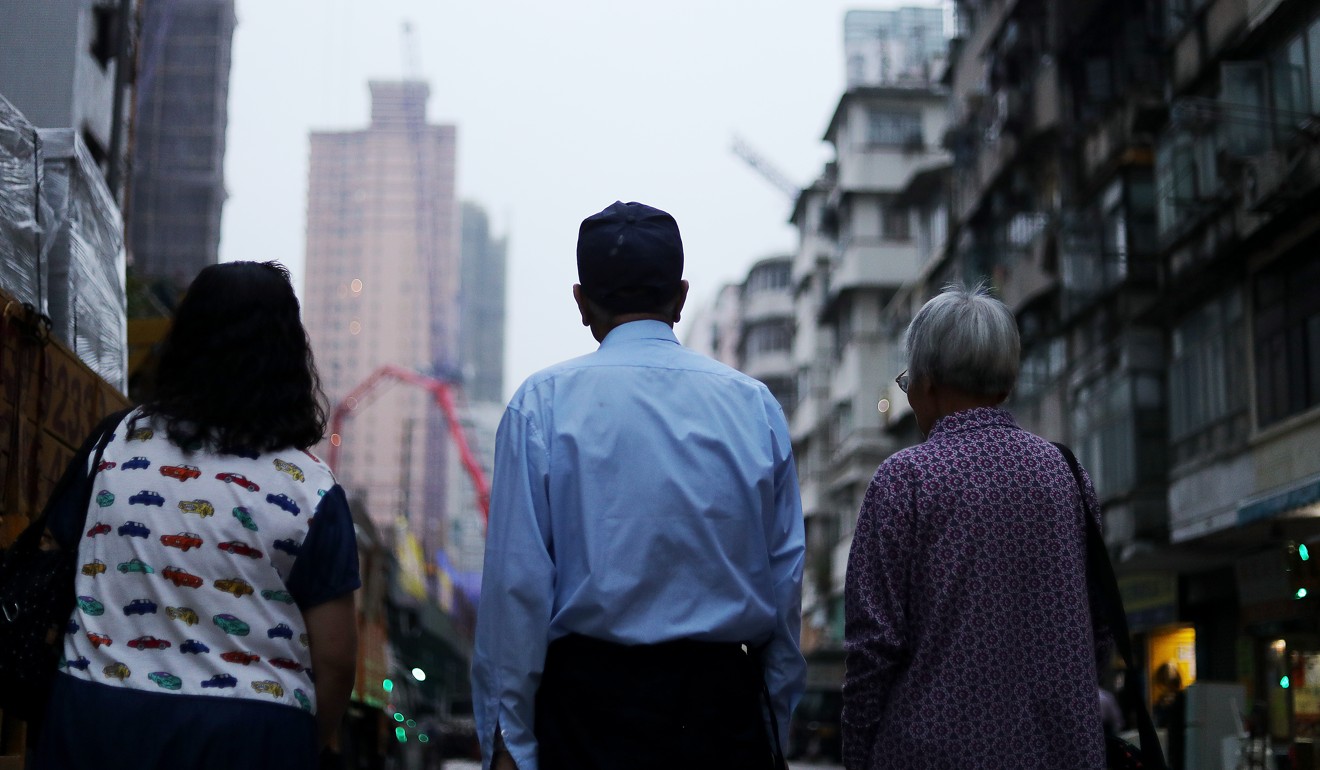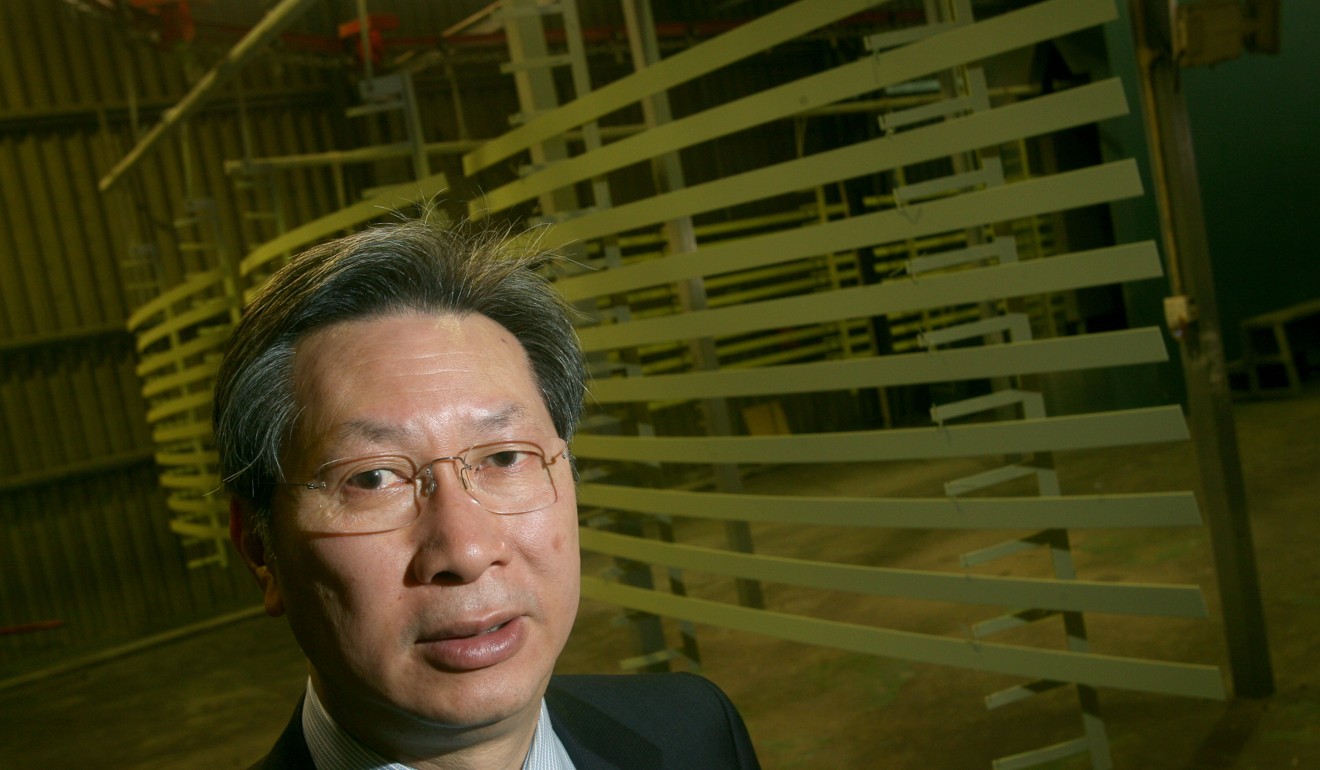
Elderly Hong Kong workers paid so badly they can hardly afford to buy lunch – but business groups insist they can’t pay more
Pay gap on the rise as unions call for increase in minimum wage so city’s most vulnerable can live with dignity
Senior citizens and women have been the biggest losers when it comes to wage growth in Hong Kong, seeing the slowest rise in salaries in a six-year period compared to other groups.
The findings prompted unionists to demand employers treat their staff equally, as they called for the hourly minimum wage to increase from HK$34.5 to about HK$44, a level they said would allow the underprivileged to live with dignity.
Latest official statistics show those aged 55 and above saw their income go up by 24.6 per cent between 2011 and last year, with median hourly pay reaching only HK$46, barely enough for a set meal at fast food shops.

Those in the 15 to 24 age group saw the biggest wage jump of 33.7 per cent, with median hourly pay hitting HK$49.5.
Women took home a median hourly pay of HK$60.5 last year, a 28 per cent improvement from 2011. Men did better, with median hourly pay rising 32 per cent to HK$75.9 last year.
“Hong Kong workers are not sharing the fruits of economic growth over the years,” said Lee Cheuk-yan, general secretary of the Confederation of Trade Unions.
The former lawmaker added: “Employers should be ashamed of the gender pay gap. Paying some staff worse than others just because they are women constitutes discrimination.”
Lee was also among unionists lobbying the Minimum Wage Commission, an advisory body, to ask the government to set a higher minimum wage from next year. It is now HK$34.5 an hour.
What can you buy with the new HK$34.50 minimum wage?
Lee’s union group wants HK$44 an hour while Bill Tang Ka-piu of the Federation of Trade Unions, called for HK$42.5 an hour.
Statutory minimum wages first came into force in 2011 and was HK$28 an hour. To the workers’ dismay, it only went up to HK$30 in 2013, and then to HK$32.5 in 2015, before becoming HK$34.5 last year.
This amount is raised every two years, so a new level, that requires legislative approval, is expected to be in place next year.
But employers rejected unionists calls saying the demand for a rise of about 25 per cent would inflate business costs and could even render the workers jobless.

Changes to the minimum wage – mostly applicable to low-income jobs – tend to have a ripple effect on other industries, as salaried workers would ask bosses for a similar percentage increase.
The Small and Medium Enterprises Association’s survey of 300 members found about four in 10 supported an increase to HK$36 an hour, with fewer than three in 10 suggesting a freeze at the current level.
The association’s honorary life chairman Danny Lau Tat-pong said at the present minimum wage it was getting tougher to find people to be carers and cleaners in homes for the elderly. Jobseekers preferred less physically demanding roles such as being security guards, he said.
What difference will an increase to the minimum wage mean for the lowest-paid?
Catherine Yan Sui-han, convenor of the Environmental Services Contractors Alliance which represents 90 per cent of the city’s cleaning companies, called for the level to be frozen.
“If the level goes up by too much, it would drive up inflation. Consumers will become victims,” she said.
Lee said a minimum wage rise to HK$44 was justified, especially since the government had decided it would not legislate standard working hours that would force employers to pay overtime wages, but issue guidelines instead.
If the administration had political will, it could push through the raise, he said, citing South Korea where the minimum wage will go up by 10.9 per cent to 8,350 won (HK$58) an hour from next year.
City’s low-pay industries ‘face HK$2.9 billion hit if minimum wage rises to HK$42’
Even Taiwan has a higher minimum wage level than Hong Kong does, at HK$36 an hour, despite the lower cost of living there, Lee added.
Economist Andy Kwan Cheuk-chiu, in a report released on Sunday, said a silver lining of the statutory minimum wage policy was that it seemed to have lured older people back to work. About 12 per cent of those aged 65 and above are in the labour force now, up from 5.7 per cent in 2010.
“This phenomenon seems to exert a positive effect on the total labour supply in terms of delaying the problem of a shrinking labour force to occur in the next few years,” he said.

